If you’re close to finishing school and considering enrolling in a degree, you might be wondering: what are the main differences between school and university life?
On your first day of university, you’ll be entering a whole new learning environment. To begin with, universities are generally much bigger with thousands of students, plus you also have more choices to make, and more responsibilities, too.
If you’re moving away from home for the first time to attend university, you’re going to have to adjust to independent living. But, don’t panic, you’ll pick it up much faster than you expect.
Here are 4 big differences between school and university life that will take adjusting to, with a few tips from our University of Adelaide College students and graduates:
1. Learning independently vs. managed learning
“First thing first, no one is going to yell at you if you don’t do your assignments or when you decide to skip lectures. It is all on you. You are in charge and responsible for your uni life as an adult. You won’t be forced to do anything, but it will always be beneficial to your learning if you do it.” – Charmian Lam (Hong Kong SAR, Bachelor of Food and Nutrition Science graduate, University of Adelaide)

Charmain Lain
At university, you’re expected to take responsibility for your own learning. Unlike school, there will be no-one checking that you’ve done your homework, reminding you when assignments are due, or making sure you show up to your lectures. It’s up to you, how and when you want to learn.
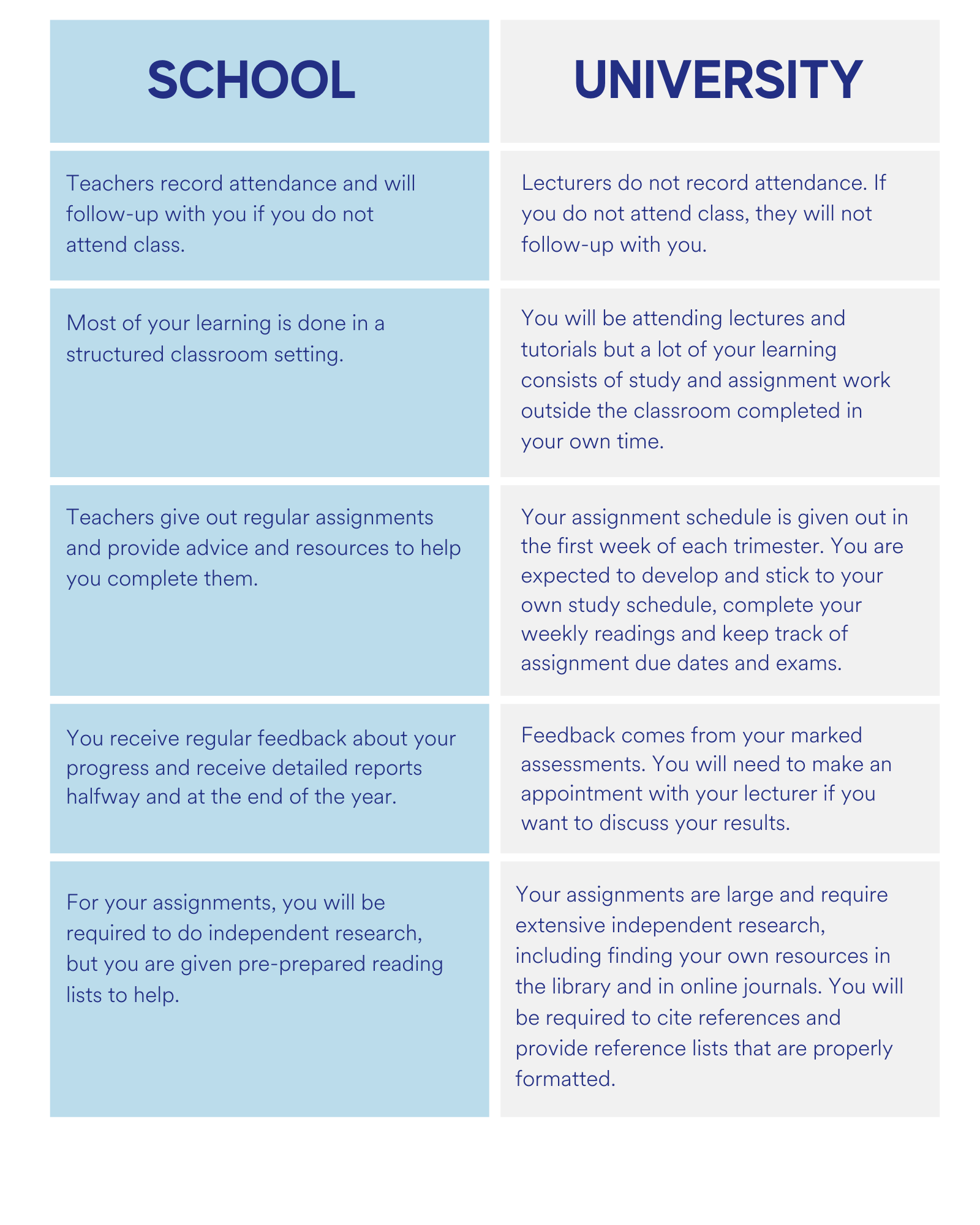
2. Flexibility and choice vs. a set curriculum and schedule
“At university, students have more chances to choose how and when they want to learn. The same course will have different class times, so students can choose the appropriate time based on their schedule. Take me for example: I do not like attending morning classes, especially during winter, so I always choose class times that are in the afternoon.”
Wenhan Wu (China, Bachelor of Teaching graduate, University of Adelaide)

Wenhan Wu (second from left)
At school, you have a strict structure determined for you. School goes from 9am until 3pm every day, your lunch is at the same hour, you have a set class and you don’t have any choice over it. At university there is much more flexibility about your choice of electives, class times, the type of resources you have access to and sport and social groups you can join!
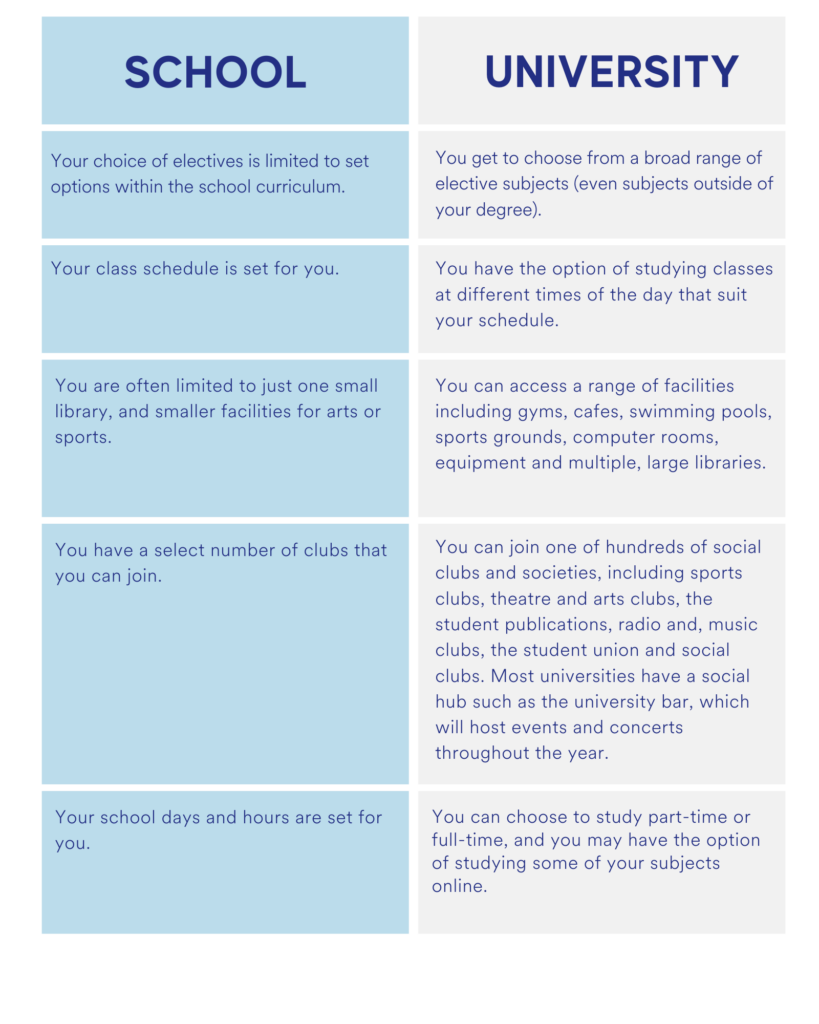
3. Managing your own life vs. living with parents
“Learn to cook. You will find cooking is an essential skill when you go abroad. Find a reliable agency when you look for a place to live. And don’t forget to read the contract carefully before you sign it.”
Wenhan Wu (China, 3rd year, Bachelor of Teaching graduate, University of Adelaide).
For a lot of students, starting university also means moving out of the family home, and even to a different country altogether. Not only are you getting used to a different class structure and learning style, but you also need to learn how to run your own household, and even master a new language.
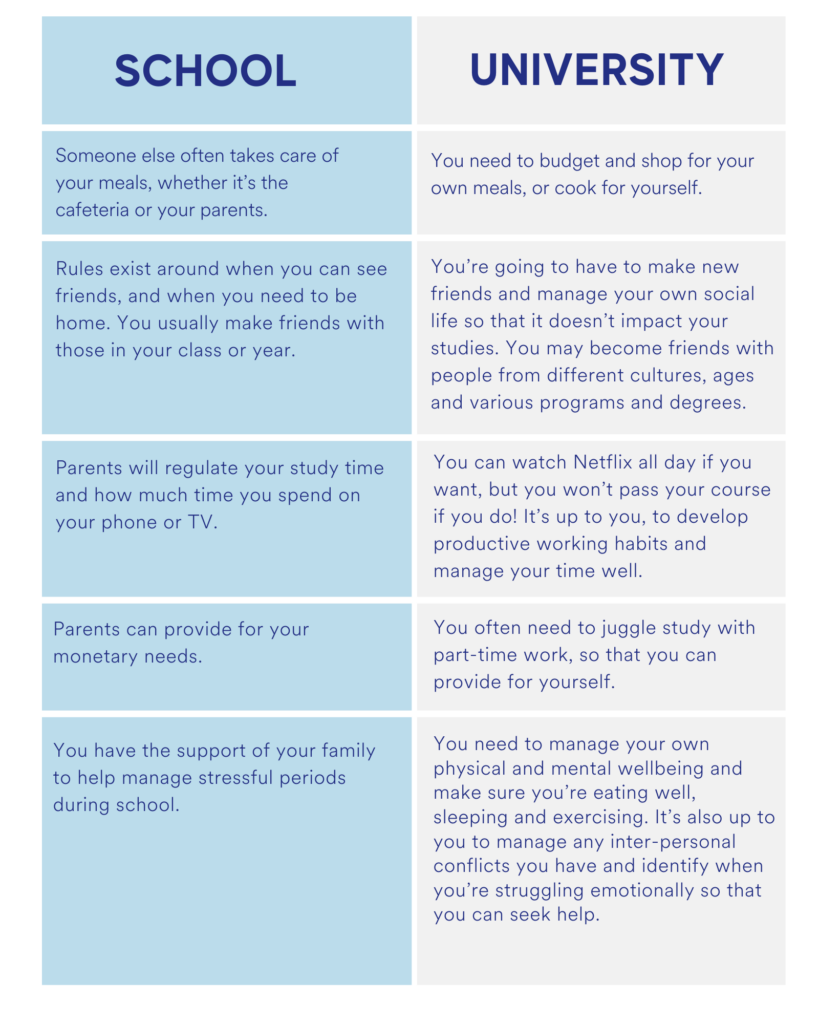
4. Academic staff vs. school teaching
“The lecturers are always there to provide help and support. However, if there is no one available, never hesitate to go online and look for answers. Google is your friend but a lecturer is your best friend when it comes to fully understanding your course.”
Charmain Lam (Hong Kong SAR, Bachelor of Food and Nutrition Science graduate at the University of Adelaide).
At school, your teacher is very involved in your education. They report to your parents, know you well, and regularly give you feedback. At university, it’s a whole different story. Lecturers may have hundreds of students, and they won’t necessarily know your name.
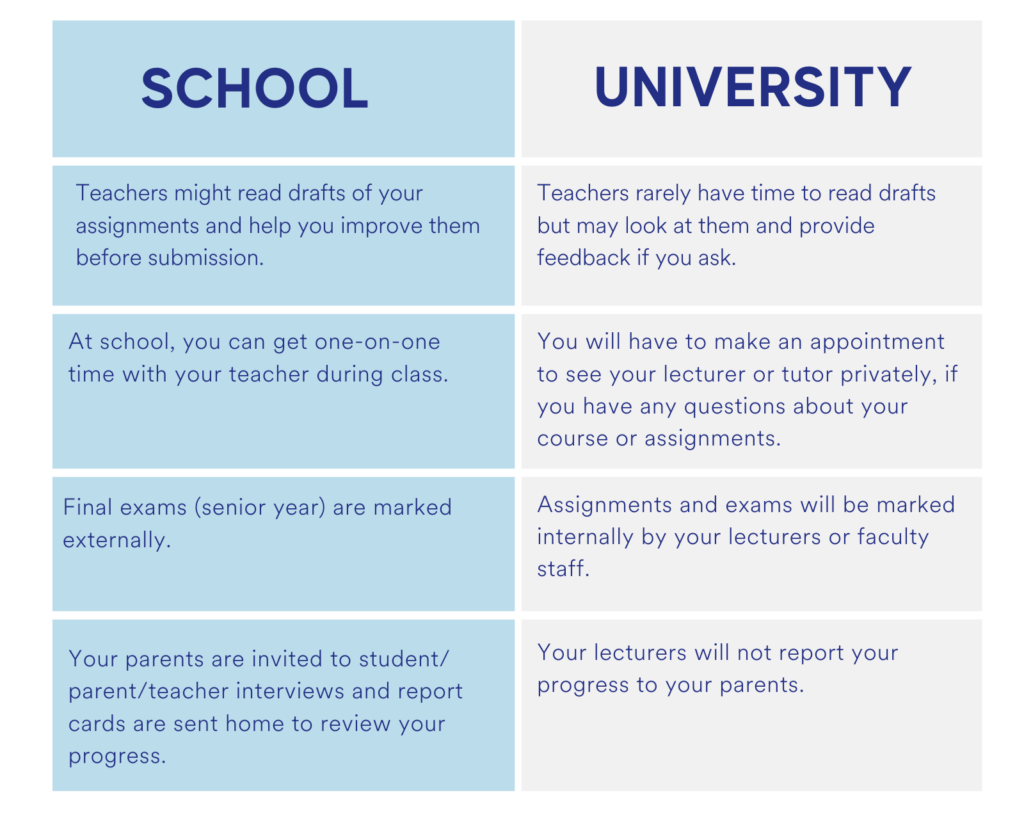
Top tips to help you adjust to university life
“Always ask teachers for help or advice if needed. No matter if it is about study or life. They are the most reliable and trustworthy people around you.”
Wenhan Wu (China, 3rd year, Bachelor of Teaching, University of Adelaide).
“Join social clubs at your uni. It’s an easy way to get to know more people and be engaged in different activities. You will not regret joining one!”
Charmian Lam (Hong Kong SAR, Bachelor of Food and Nutrition Science graduate, the University of Adelaide).
The move from school to university takes some adjusting, particularly if you’re moving overseas to study.
Here are some top tips on how to make that process just a little bit easier for yourself:

If you are considering studying in Australia, it’s a good idea to do an English Language Program, before you begin your degree. The programs will enable you to communicate with confidence and obtain essential language skills necessary for academic study in Australia, in a supportive environment.
At the University of Adelaide College, you can learn academic English and study introductory subjects for your University of Adelaide degree. You will have support staff to help you through your transition, as well as a range of additional resources (like English tutoring). As the classes are smaller, you will receive more individual attention which is a great stepping stone to independent learning.

You will need to learn to learn time management skills, because your schedule is up to you now! A calendar and a study schedule are key to managing your independent workload. Find out how to develop a study schedule that actually works, here.

You can make your life easier with the help of technology. Put all your assignments into a Google calendar or other calendar app, and insert reminders two weeks before the due date, so you’re well prepared. A ‘to do’ list app is also a great help when you’re trying to order your priorities.

Make sure you regularly look at your online student portal for notifications and updates.

Always ask for help from your tutors, lecturers, or student services if you feel overwhelmed. At the University of Adelaide College, student services can help you with anything relating to your studies including any challenges or concerns you have. Don’t hesitate to ask if you need anything at all.

At the University of Adelaide College, we want to make sure you have the right support to make the most of your study experience with us. Our student services team are here to offer any academic guidance you may need.
